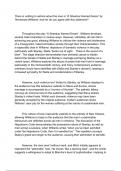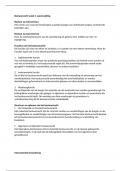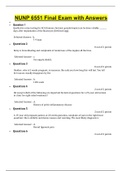Essay
Essay- Are the men admirable in “A Streetcar Named Desire”?
There is nothing to admire about the men in “A Streetcar Named Desire” by Tennessee Williams- how far do you agree with this statement? This is an essay for A Level English Literature, which received full marks (50/50) and an A* grade. As well as a clean copy, I have attached an notated ve...
[Show more]







